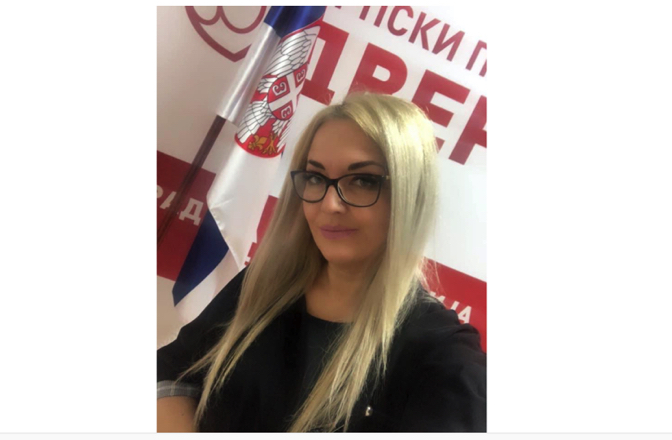By: Svetlana Maksovic
Dear Ms. Mijatovic,
Thank you for responding to our previous letter. We would like to draw your attention to the violation of the human rights of Serbs in Croatia. As you know, the election campaign for the parliamentary elections to be held on July 5 of this year is currently in full swing in Croatia. However, the Serb minority in Croatia is increasingly becoming the target of inflammatory political rhetoric and hate speech.
A few days ago, graffiti appeared in Zagreb with a message of hatred against the Serbian ethnic minority. A few days later, a group of Dinamo Zagreb supporters were photographed with a banner that also carried threatening messages aimed at Serbs. You will find the details about these incidents in the document enclosed to this letter.
Such incidents are not uncommon in Croatia, which seriously jeopardizes the security situation of the Serbian population in that country. The Prime Minister of Croatia, Andrej Plenkovic, and the Minister of the Interior, Davor Bozinovic, condemned the above-mentioned incidents in a very cautious and mild manner. They stated that „such actions have no place in public“ and that „the police will investigate any call for violence“, without mentioning that the victims of these incidents were Serbs.

It depicts a lynching and the words beneath it in English, “Serbian Family Tree”, suggesting that the victims are ethnic Serbs. Though the writing is in English, the scene is clearly a reference to a notorious local slogan “Srbe na vrbe” (“Hang the Serbs from the willow trees”), which has been used since 1940s.
Ivan Penava, a member of the new Homeland Movement (opposition to the ruling HDZ) since 2017, the mayor of Vukovar, has always refused to allow the use of bilingualism, despite court rulings. Due to public criticism of his position, he has further elaborated his anti-Serb rhetoric. One of the promises of the Homeland Movement is to amend the electoral law to make it more difficult for Serbs to be elected.
It is the duty of every State to protect all its citizens, whether or not they belong to an ethnic minority. It is clear from the above that hate speech accompanied by threats against Serbs goes unpunished and that Serbs cannot rely on the protection of the Croatian State.

Dinamo Zagreb football hooligans posing with a banner that threatened: “We’ll f*** Serbian women and children.”
In his 2011 report, Thomas Hammarberg, then Commissioner for Human Rights of the Council of Europe, stated that the government had an obligation to take three types of action: to respect human rights standards, to protect people against human rights violations and to take the necessary measures to ensure that human rights are respected.
In addition, the European Court of Human Rights has stressed the obligation of governments to take measures to put an end to human rights violations. In a judgment (Nahova and Others. v. Bulgaria, 6 July 2005), the Court underlined the importance of effective investigation of cases of racially motivated violence:
”Racial violence is a particular affront to human dignity and, in view of its perilous consequences, requires from the authorities special vigilance and a vigorous reaction. It is for this reason that the authorities must use all available means to combat racism and racist violence, thereby reinforcing democracy’s vision of a society in which diversity is not perceived as a threat but as a source of enrichment.”
In the same judgment, the Court stressed the duty of governments to take all reasonable steps to unmask any racist motive and to establish whether ethnic hatred or prejudice played a role.
A year later, the European Court of Human Rights issued a similar decision : ”Tolerance and respect for the equal dignity of all human beings constitute the foundations of a democratic, pluralistic society. That being so, as a matter of principle it may be considered necessary in certain democratic societies to sanction or even prevent all forms of expression which spread, incite, promote or justify hatred based on intolerance.“ (Erbakan v. Turkey judgment of 6 July 2006, § 56).
Finally, when you assumed the role of Commissioner for Human Rights, you stated that your role was to keep States alert to the problems that may restrict people’s ability to enjoy their rights, and to help them find solutions to improve human rights protection and implementation.
We reiterate our concern about the lack of reaction of the Council of Europe to such incidents and the clear violation of the human rights of the Serb minority in Croatia. Please include this serious issue in your further work in accordance with the European Convention on Human Rights, as well as the judgments of the European Court of Human Rights.
Best regards,
Svetlana Maksovic
Member of the Council for Foreign Affairs of Dveri
June 23, 2020

